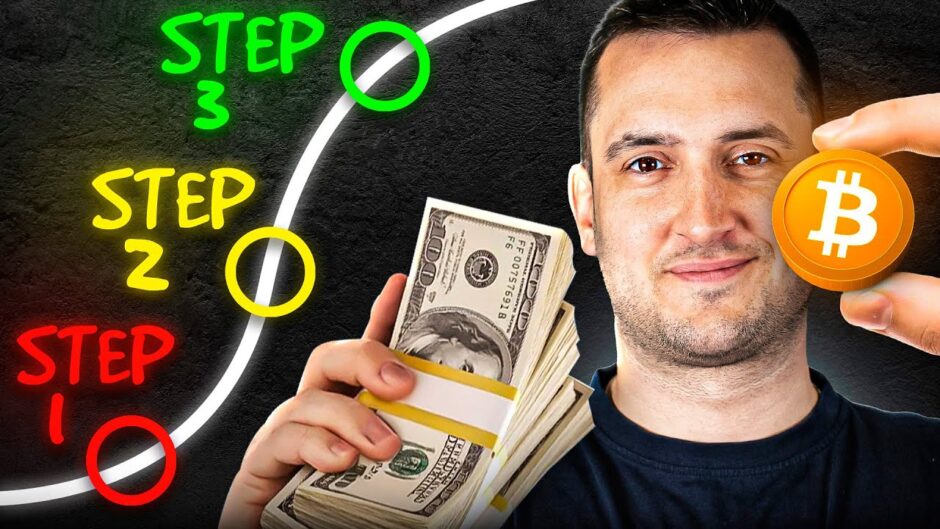We are excited to share with you a thought-provoking blog post that explores the fascinating world of trading. In this article, we will delve into the intriguing question of how certain trading practices can generate significant financial returns. Join us as we dive into the realm of legality, unveiling the secrets behind these million-dollar ventures. So, buckle up and get ready for an insightful journey into the world of trading and the factors that contribute to its astonishing success.
Introduction
Welcome to our article! We’re here to tackle a burning question that many people have: how can certain trading practices be legal when they seem to be making millions for some individuals? It’s a topic that has stirred up a lot of confusion and curiosity in the financial world, and we are here to shed some light on it.
Context of the issue
In the world of trading, there is a term that often raises eyebrows – insider trading. It refers to the buying or selling of stocks by individuals who have access to exclusive, non-public information about a company. This information can give them a significant advantage over other traders, allowing them to make huge profits. However, not all insider trading is illegal.
Explanation of the Stock Act
To understand the legality of certain trading practices, we need to dive into the Stock Act. The Stock Act, also known as the Stop Trading on Congressional Knowledge Act, was passed in 2012 with the aim of preventing members of Congress and other government employees from using non-public information obtained through their positions for personal financial gain. It was a response to public outrage over reports of lawmakers profiting from insider information.
According to the Stock Act, insider trading is illegal if it involves trading based on material, non-public information obtained in violation of a fiduciary duty or relationship of trust and confidence. In simpler terms, if someone uses information that is not available to the general public and trades based on it, they are breaking the law.
Discussion on missing deadlines
One challenge in prosecuting insider trading cases is the difficulty of proving beyond a reasonable doubt that someone traded based on material, non-public information. Often, the evidence is circumstantial, making it challenging to establish a direct link between the trades and the inside information.
To complicate matters further, there can be legitimate reasons for unusual trading patterns. For example, if a trader has a track record of successful investments and happens to make profitable trades, it may not necessarily indicate insider trading. Establishing intent is a crucial element in proving these cases.
Insight on pandemic prophets
The COVID-19 pandemic brought a lot of attention to the stock market, with many individuals making huge profits by making well-timed trades. Some of these traders acquired large fortunes seemingly overnight, leading to questions about the legality of their actions. But it’s essential to recognize that not every large gain is a result of insider trading.
Market volatility, combined with astute analysis and a bit of luck, can contribute to significant gains. While it may seem suspicious, it is crucial to approach these cases with caution and thoroughly investigate before making any conclusions.
Understanding how insider trading is proven
To prove insider trading, authorities typically rely on various tools and techniques. They may analyze communication records, such as emails or phone calls, to identify instances where non-public information was shared or used for trading purposes. Additionally, they monitor trading patterns and look for abnormal activities among certain individuals.
However, it’s important to remember that suspicion alone is not enough to establish guilt. A thorough investigation is required to confirm if insider trading took place and to collect sufficient evidence for legal action.
Mention of Nancy Pelosi’s trading success
One prominent example often cited when discussing the legality of trading practices is the trading success of Nancy Pelosi, the Speaker of the United States House of Representatives. Critics have pointed out instances where Pelosi made well-timed trades that resulted in substantial profits.
However, it’s important to note that Nancy Pelosi’s trading activities have been strictly monitored and reviewed by ethics committees. While her success may raise eyebrows, no conclusive evidence of insider trading has been found. It’s essential to approach these claims with skepticism and refrain from jumping to conclusions without solid evidence.
Highlighting some good news
Despite the concerns surrounding trading practices, it’s crucial to acknowledge that the vast majority of traders operate within the boundaries of the law. Countless individuals earn their wealth through careful analysis, strategic decision-making, and years of experience.
The stock market serves as a crucial engine for economic growth, providing opportunities for investment, job creation, and funding for innovative ideas. It would be unfair to overshadow these successes with the skepticism that arises from a few high-profile cases.
Looking towards the future
Moving forward, it’s essential for regulators to continue monitoring and investigating potential cases of insider trading. Stricter enforcement and increased transparency can contribute to maintaining the integrity of the financial markets. By doing so, confidence among investors can be preserved, ensuring a level playing field for all participants.
Disclaimer regarding the content
The information provided in this article is for educational and informational purposes only. It should not be considered as legal or financial advice. Trading in the stock market carries risks, and individuals should conduct thorough research and consult with professionals before making any investment decisions.
FAQs
- Is all insider trading illegal?
- How can someone be accused of insider trading without concrete evidence?
- What are some red flags that could indicate potential insider trading?
- Can trading success be solely attributed to insider information?
- What measures are regulators taking to prevent insider trading?




